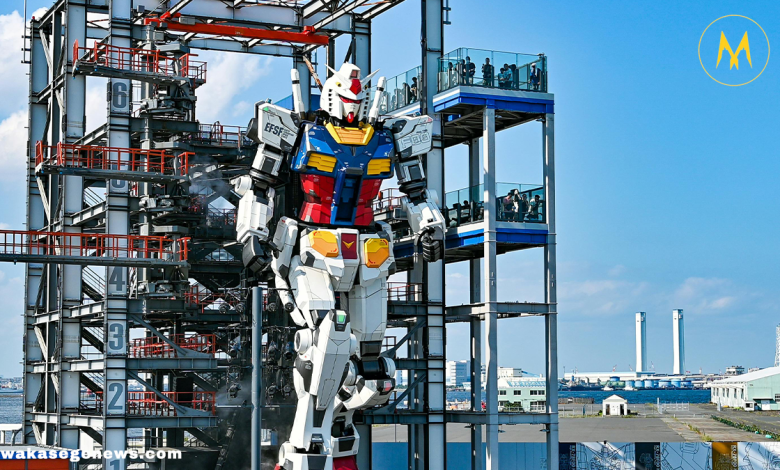
Technology has always been a catalyst for change, driving progress across all sectors of human life. From the invention of the wheel to the rise of the internet, innovative ideas have revolutionized how we live, work, and connect.As we move deeper into the 21st century, a remarkable wave of innovative inventions is transforming our future. These cutting-edge technologies are not only captivating but also offer practical solutions to some of the world’s most urgent challenges. In this article, we explore some of the most promising inventions poised to transform our world over the coming decades.
Would you like me to help rephrase more sections like this?
1. Artificial Intelligence (AI) and Machine Learning
AI is no longer science fiction. Today, it powers voice assistants, recommendation engines, and even autonomous vehicles. Or if you want it a bit more formal:
Yet, the future promises even more remarkable advancements.
AI is expected to play a major role in personalized medicine, predictive analytics, smart cities, and education. With its ability to process massive amounts of data at lightning speed, AI will become an indispensable tool in decision-making, automation, and problem-solving.
2. Quantum Computing
Quantum computers harness the principles of quantum mechanics to perform calculations far beyond the capabilities of traditional computers. This technology could revolutionize fields like cryptography, drug discovery, and climate modeling. Companies like Google, IBM, and startups around the world are racing to develop practical quantum machines that could solve problems previously deemed unsolvable.
ALSO READ: AI-Powered Everything: How Artificial Intelligence Is Rewiring Everyday Life in 2025
3. Renewable Energy Innovations
As the world grapples with climate change, renewable energy inventions are critical. Innovations in solar panels, wind turbines, and energy storage systems are making clean energy more accessible and efficient. Technologies like solar skins, floating wind farms, and graphene batteries could redefine how we generate and consume power.
4. Bioprinting and Organ Regeneration
Bioprinting is an incredible advancement that allows scientists to print human tissue, and one day, even entire organs. Using a patient’s own cells, researchers can create tissue that the body is less likely to reject. This could drastically reduce organ transplant wait times and save countless lives.
5. Autonomous Vehicles and Smart Transport
Self-driving cars, drones, and hyperloop systems are changing the way we think about transport. These innovations promise safer roads, reduced traffic congestion, and improved urban planning. With companies like Tesla, Waymo, and Virgin Hyperloop investing heavily in this space, the future of mobility looks radically different.
6. Augmented Reality (AR) and Virtual Reality (VR)
AR and VR are no longer limited to gaming. They are now being applied in education, real estate, retail, and healthcare. Imagine virtual classrooms where students interact with 3D models or doctors performing remote surgeries using VR interfaces. These technologies are making experiences more immersive and effective.
ALSO READ: AI Is Taking Over Jobs: What Can You Do to Stay Relevant?
7. Space Exploration and Colonization
With private companies like SpaceX and Blue Origin making space travel more accessible, the dream of colonizing Mars is closer than ever. Advanced space suits, reusable rockets, and AI-powered navigation systems are setting the stage for the next giant leap for mankind. These inventions could lead to the discovery of new resources and even new forms of life.
8. Advanced Robotics
Robots are becoming more human-like in their movements and capabilities. From assisting in surgeries to performing complex tasks in hazardous environments, robotics is evolving rapidly. The integration of AI and machine learning makes them more adaptive and efficient, enhancing productivity and safety.
9. Smart Homes and IoT (Internet of Things)
Smart homes powered by IoT devices are making daily life more convenient. From thermostats that learn your preferences to refrigerators that monitor your groceries, the smart home ecosystem is growing fast. In the near future, cities will harness IoT technology to actively manage traffic, utilities, and public safety through seamless interconnectivity.
10. Genetic Engineering and CRISPR
CRISPR technology allows scientists to edit genes with incredible precision. This could eliminate genetic disorders, enhance crop yields, and even create resistance to diseases. Ethical concerns remain, but the potential benefits for medicine and agriculture are immense.
Conclusion:
These genius inventions are actively shaping our future, redefining how we live, work, and interact with the world. While innovators must still address challenges like ethics, accessibility, and sustainability, the technologies discussed offer a compelling vision of what’s possible. By embracing these advancements responsibly, society can build a future that is smarter, healthier, and more connected than ever before.
FAQs:
Some inventions include AI, quantum computing, renewable energy solutions, bioprinting, smart homes, and CRISPR gene editing.
AI will automate routine tasks, personalize user experiences, and enhance healthcare, education, and urban planning.
Quantum computing uses quantum mechanics to perform complex calculations, offering breakthroughs in science, medicine, and security.
While smart homes offer convenience, it is essential to implement strong cybersecurity measures to protect user data and privacy.
Genetic engineering raises issues around consent, fairness, genetic discrimination, and long-term ecological impacts.





3 Comments